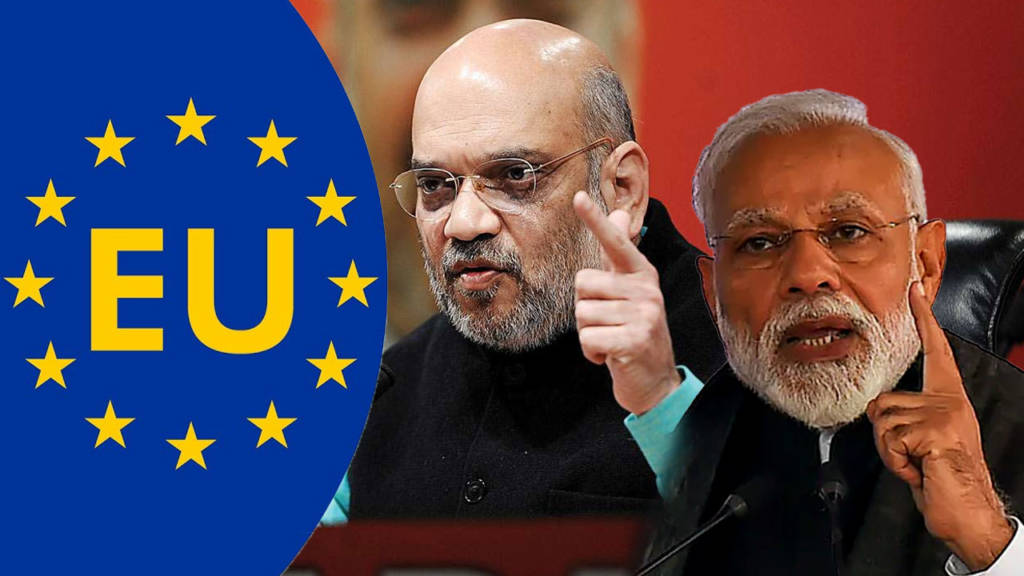European Union, the transnational organization which was going to discuss and vote on the Indian government’s recent steps which include the CAA and abrogation of Article 370 on January 30, has decided to defer the voting. The Indian government termed it as “diplomatic victory”.
India has always maintained that the CAA and Article 370 are “internal matter” of India, and no country or transnational organizations have a say in the matter.
“Friends of India prevailed over friends of Pakistan in the European Parliament today. Strenuous efforts of outgoing British member Shaffaq Mohammad to have a resolution passed by the European Parliament against India on a penultimate day before Brexit have been defeated,” said an official.
It is obvious that certain Members of the European Parliament would not like to undermine their interest for the member country which is going to leave the organization on the very next day. The resolution to vote and discuss the matter was pushed by a British member of European parliament- Shaffaq Mohammad- who is of Pakistani origin; and given the fact Britain is going to leave EU on January 31, the matters of interest for British Liberal politicians do not carry a weight for other European countries or parties.
EU knows that even if the European Parliament passes the resolutions critical of CAA, it is not going to make a big difference, as Amit Shah has repeatedly said that there will be no compromise on CAA. But, it is very much evident from the desperation of EU that they are trying to remain relevant on the Global platform at a time when Brexit has been finalized.
The EU has become weaker in the last few years with the rise of Nationalism and anti-immigrant sentiments across Europe and has faced severe criticism from the right-wing leaders. In the United Kingdom, Prime Minister Boris Johnson led a pro-Brexit campaign and won one of the largest majority in the last few decades. The UKIP leader Nigel Farage became extremely popular, riding on the anti-European sentiments.
In France, Marine Le Pen, the President of the National Front, registered largest-ever tally in the Presidential election, riding on the anti-European Union and anti-immigration stand. The European Union has been criticized for being elitist, out of touch, and anti-democratic, and too bureaucratic.
After the Brexit and the rising anti-European Union sentiment across Europe, the translational body is trying to remain relevant through these resolutions, and trying to pose that it is still a powerful International body. The EU is trying to be the flag bearer of ‘liberal democracy’ and what they call ‘rule-based international system’; but it has failed in the last few years and the biggest proof of this is, obliviously, Brexit.
At a time when the fortunes of the translational organization are already on the decline, a blow from relations with India, which has been its trustworthy partner for decades, is the last thing it can afford. And therefore, the EU has decided to focus on internal matters and not meddle in other countries affairs, especially a powerful one like India.
